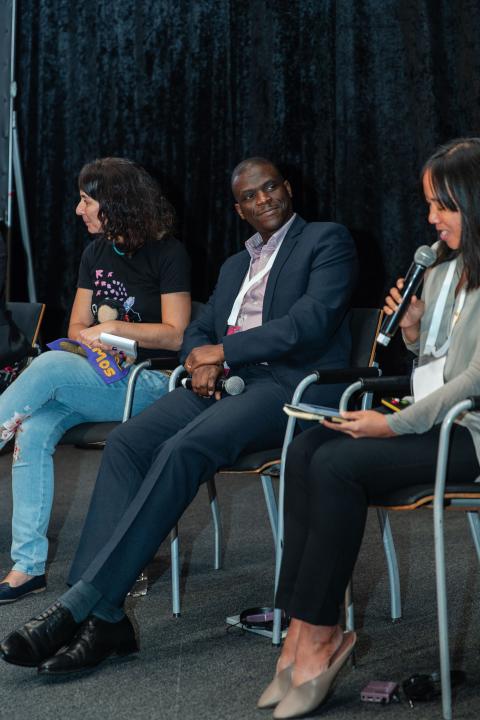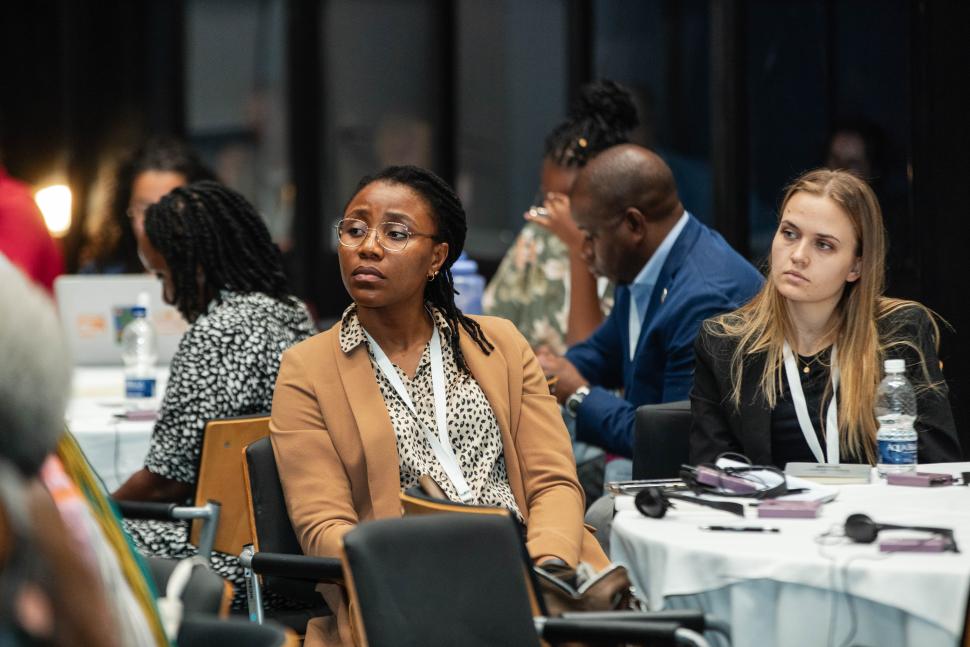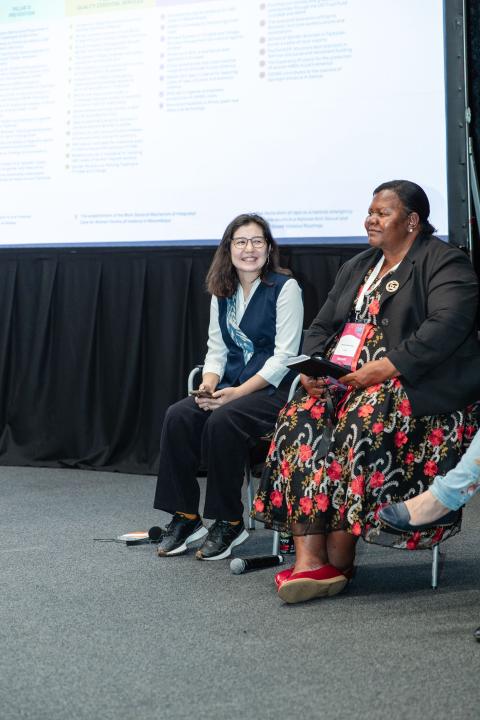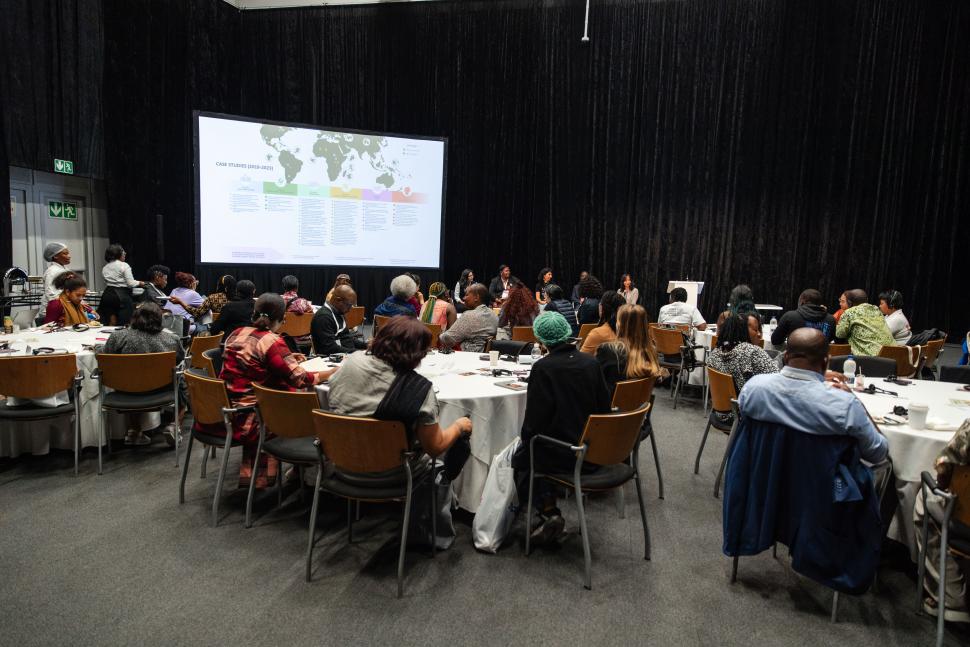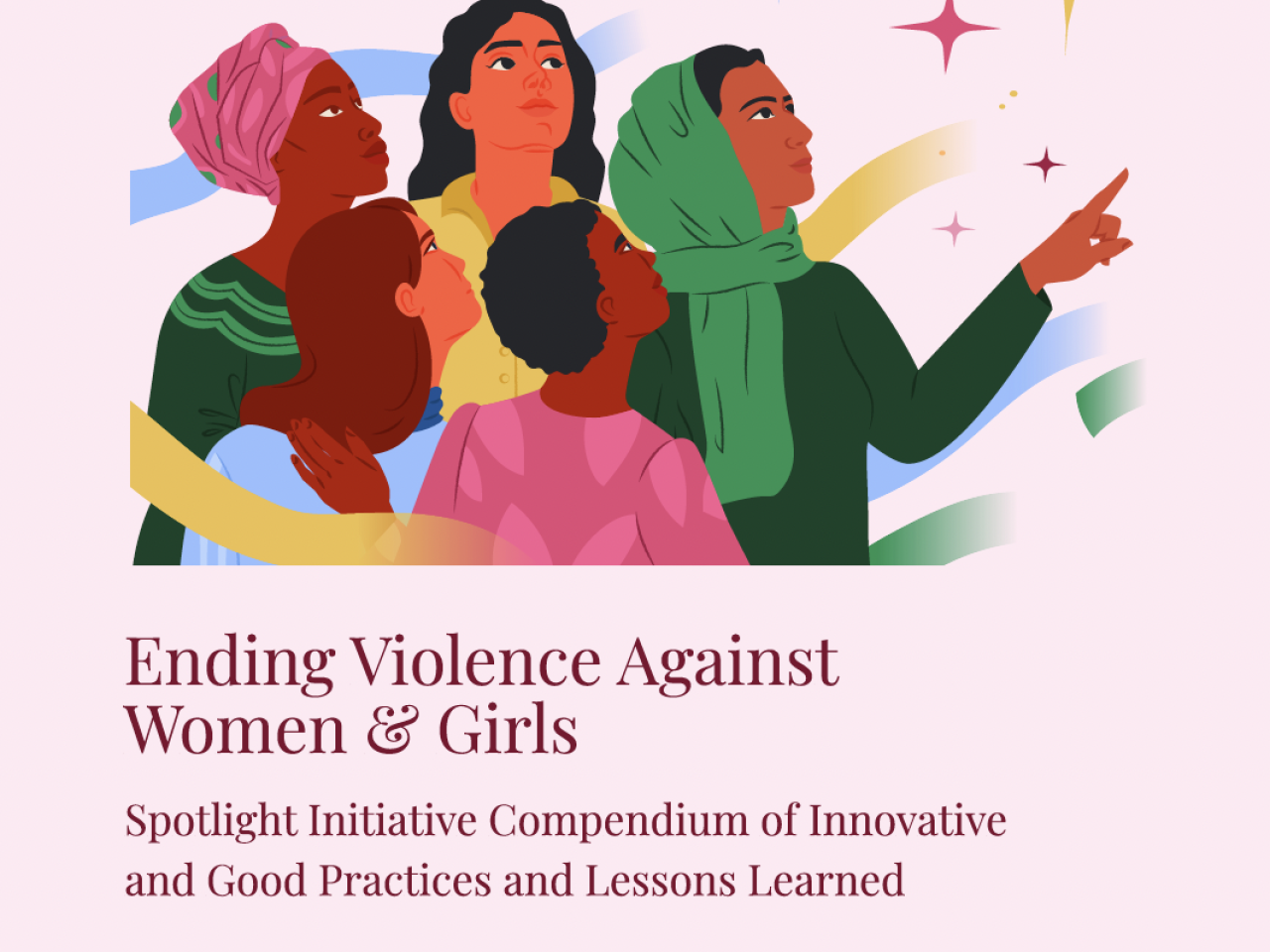At the SVRI Forum 2024: A journey in comprehensive EVAWG programming: drawing lessons for the sector from the Spotlight Initiative Compendium
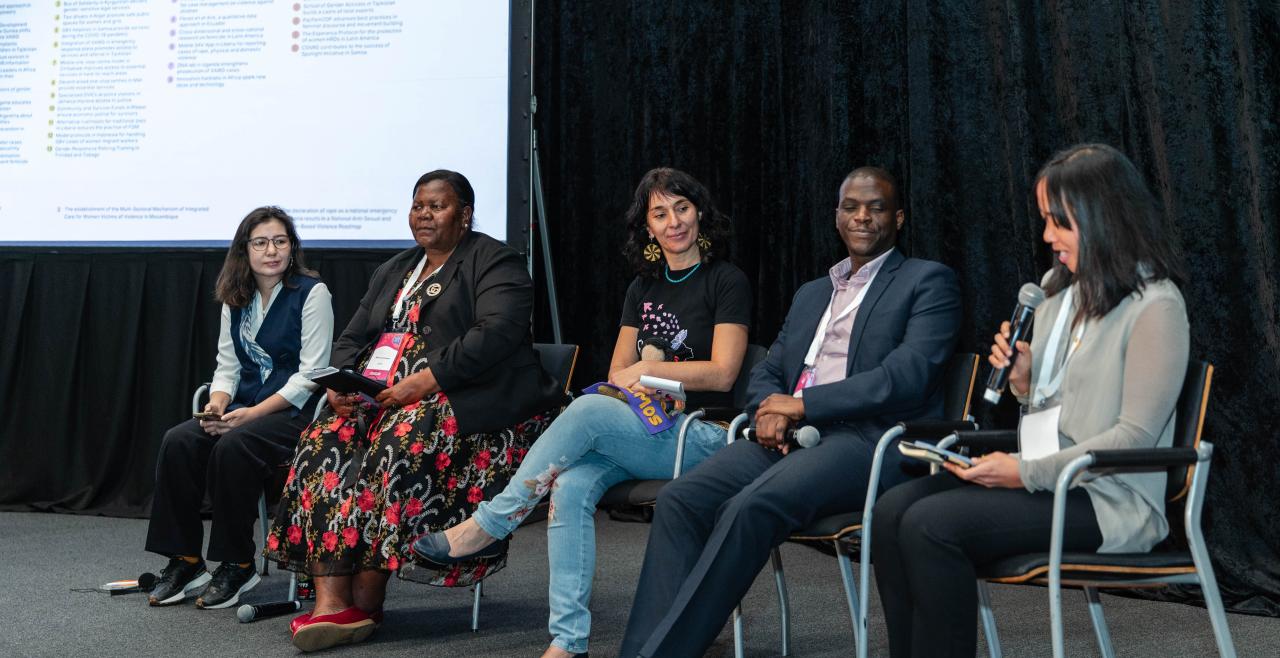
CAPE TOWN, South Africa – During the 2024 Sexual Violence Research Initiative (SVRI) Forum in Cape Town, Spotlight Initiative hosted ‘A journey in comprehensive EVAWG programming: drawing lessons for the sector from the Spotlight Initiative Compendium’. The event brought together experts, practitioners and activists whose work and stories are highlighted in the Compendium to share and interrogate critical learnings, replicable practices, and effective and innovative approaches to comprehensive ending violence against women and girls (EVAWG) programming.
Featuring reflections and testimonies from stakeholders working across diverse and innovative programming areas, including a qualitative data approach to ending femicide in Ecuador, DNA labs that have strengthened VAWG prosecution rates in Uganda, educational mobile games that are raising awareness around child and forced marriage in Kyrgyzstan and a comprehensive approach to EVAWG programming in Malawi, the session underscored the importance of a socio-ecological approach to ending VAWG and drew out critical lessons learned in approaches to ensuring the sustainability of programme impacts.
The moderator of the discussion, Chief Impact Officer at ImpactMapper Nancy Yu, described the extensive research undertaken to develop the Compendium, which included a review of 325 Spotlight Initiative documents, including mid-term assessments and reports, which were then categorized and codified by thematic areas. This work was complemented by a survey and site visits to Ecuador, Kyrgyzstan, Malawi, Papua New Guinea, and Trinidad and Tobago that provided invaluable insights into the local realities of GBV and the challenges faced by survivors.
Following Ms. Yu’s introduction, the Director of Forensic Services at the Uganda Police Force, Andrew Mubiru, presented the Rapid DNA Analysis model, which has been instrumental in strengthening prosecutions in multiple countries. Through the support of Spotlight Initiative Uganda and the Embassy of Sweden, this approach has been particularly important in addressing the backlog of gender-based violence (GBV cases), with 625 personnel across the country now using specialized vans equipped with fridges to transport specimens quickly and efficiently. "The speed of evidence collection, preservation, and storage is essential to ensuring justice," Mr. Mubiru explained.
The system has led to faster processing of GBV cases, increased reporting rates and an overall strengthening of prosecutions. As a result, the conviction rate for GBV cases has increased from 70 per cent to 80 per cent, and the country is now exploring ways to digitize case management to streamline processes further. The intervention also demonstrated the effectiveness of having dedicated personnel trained in DNA analysis, with the hope that future initiatives like Spotlight Initiative 2.0 will further enhance these efforts. "Our next goal is to expand the capacity of DNA analysis and ensure that no case goes unprocessed," emphasized Mr. Mubiru.
Director of Communications at the ALDEA Foundation in Ecuador, Nicoletta Marinelli, shared a compelling story of how community-based mapping and data collection efforts have transformed the fight against femicide in the country. Starting in 2017, civil society organizations (CSOs) began collecting data on femicide cases and produced live maps to track these occurrences. Over the years, the number of documented cases increased, prompting a government response. "The real impact came from giving a voice to the victims and their families. Through our maps, we recorded not just the numbers, but the lives of the women lost, honouring them through cartography," (Flores en el Aire) Ms. Marinelli shared.
Through the support of Spotlight Initiative Ecuador, UN Women and UNDP, these maps, combined with stories from the victims' families, have brought greater visibility to the issue and catalyzed judicial actions. "By documenting the lives of these women, we were able to challenge the narrative and drive policy changes," shared Nicoletta, referencing the recent Femicide Reparation Law, which was passed in May 2024 and has ensured reparation for relatives of victims of femicide. In a powerful moment of silence, Nicoletta highlighted the importance of acknowledging the humanity of victims, rather than merely viewing them as statistics . “Vivas nos queremos (We want to live)” she said, quoting a feminist slogan that has become a rallying cry for the movement.
Gender Programme Officer for UNICEF Kyrgyzstan, Jipara Turmamatova, shared details of a unique intervention by UNICEF under Spotlight Initiative Kyrgyzstan aimed at adolescent girls in Bishkek. 'The Mystery of Sary Kol' and 'Spring in Bishkek', two educational mobile games focused on forced marriage, have not only raised awareness of this harmful practice but provided young girls with knowledge of their rights and how to take action. Ms. Turmamatova explained how "consultations with girls during the design phase were key to the game’s success. It’s crucial to understand the local context and use relevant language and scenarios."
The success of the game was evident in the fact that 77 per cent of players recommended it to friends and discussed it with their family and friends. "It helped increase the confidence of girls, teaching them about their rights and how to manage strong emotions of fear, anger and shame," Ms. Turmamatova explained. The game's impact was also felt offline, with girls more likely to report abuse and support friends in similar situations.
Gender Programme Officer at UNFPA Malawi, Beatrice Kumwenda, shared how a government-led, community-based approach in the country is accelerating efforts to end GBV. Through the use of existing structures, such as the Community Chiefs Forum, Spotlight Initiative Malawi successfully gained buy-in from the local community and engaged chiefs as allies in the fight against child marriage and gender-based violence. The chiefs' wives also formed alliances to empower girls and advocate for their rights. "The Community Chiefs Forum has become a powerful platform for dialogue, and through safe space mentorship, we are equipping young girls with the confidence to say no to violence," Ms. Kumwenda explained.
The Spotlight Initiative programme also saw the creation of a survivor fund to support women and girls who had experienced violence, along with a referral system that connected survivors to justice and health services. The impact of the interventions in Malawi was clear. With the implementation of 52 by-laws, local governance structures were able to monitor and enforce GBV laws across districts. "The success of the Initiative lies in its integration into existing community structures. We didn't create a parallel system; we built on what was already working,"Ms. Kumwenda emphasized.
During the question and answer sessions, participants reflected on the opportunity to replicate interventions in other contexts. For example, one participant shared how Liberia and Madagascar are now exploring how they can adapt and replicate the Rapid Analysis DNA lab model.
Other questions sought to understand how interventions were being sustained in the long-run. As highlighted by Ms. Kumwenda, "The real work begins after the projects are completed. We must continue to learn from each other and integrate these best practices into national and regional frameworks."

